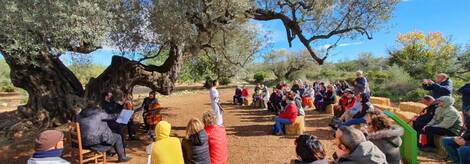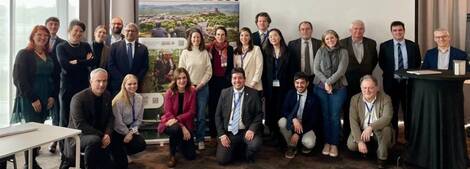
FAO
Rome, 06 May – Representatives from Nianjing Agricultural University, a leading institution in agricultural sciences and heritage since 1955 in China, joined the Globally Important Agricultural Heritage Systems (GIAHS) Secretariat of the Food and Agriculture Organization of the United Nations to explore innovative collaborative opportunities.
The delegation, led by Weichun Dong from Nanjing Agricultural University, alongside Yoshihide Endo, the coordinator of the GIAHS Secretariat, engaged in in-depth discussions on enhancing...

Photo courtesy of The Agricultural System Ancient Olive Trees Territorio Sénia
Rome — The millennial olive tree in Cervera del Maestre, part of the Globally Important Agricultural Heritage Systems (GIAHS) in the Sénia Territory, has been awarded the Best Monumental Olive Tree of Spain 2024 by the Spanish Association of Olive Municipalities. This award reinforces the historical and cultural value of the olive trees in this area, which is globally recognized for its dense concentration of millennial olive trees.
Recovered in...

FAO
The pressing necessity to transform existing agrifood systems, characterized by their substantial environmental challenges—including the widespread use of pesticides and fertilizers, greenhouse gas emissions, water overexploitation, biodiversity depletion, and soil degradation—into systems that are resilient and sustainable is becoming widely recognized on a global scale.
Emphasizing the crucial role of biodiversity preservation and the need to mitigate the environmental impact of agriculture, the Food and Agriculture Organization (FAO) of the United...

©FAO/Sabina Mirauta
©FAO/Sabina Mirauta
Brussels. - The Globally Important Agricultural Heritage Systems Programme presented its innovative approach at the European Summit of Regions and Cities in Mons.
Clelia Puzzo, Programme Specialist from the GIAHS Secretariat, highlighted the relevance of the GIAHS approach for the European Regions and Cities through rural development actions, promotion of territorial food systems, and transmission of traditional knowledge, and connecting heritage values with sustainability and innovation.
On the margins of...


